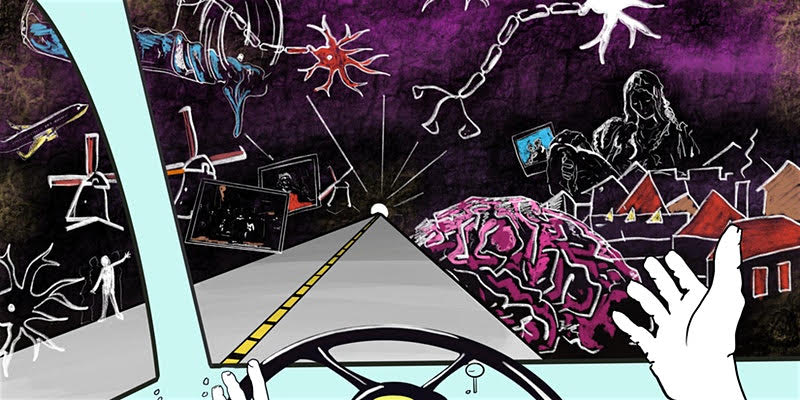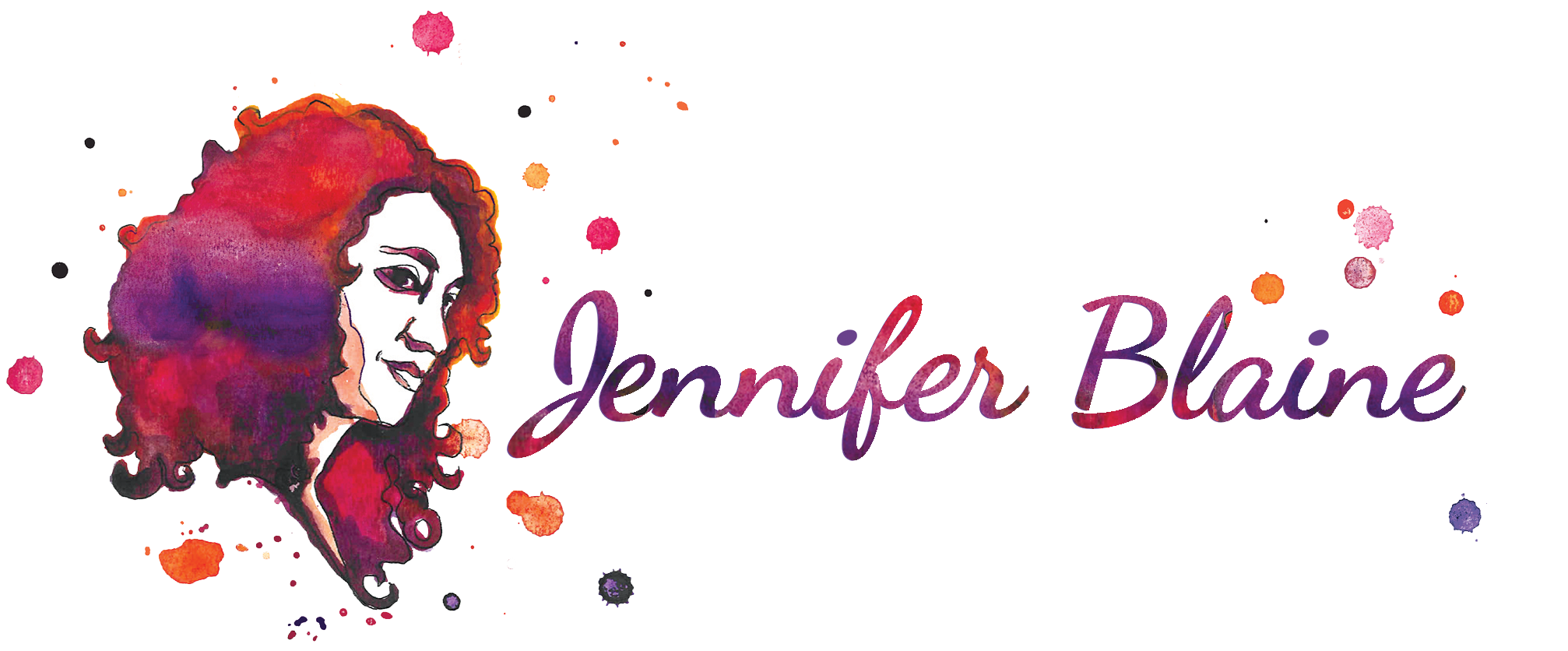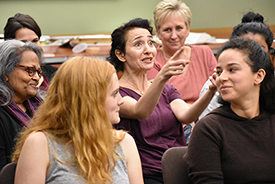The Vicissitudes of Travel


 “Hosting ‘The Vicissitudes of Travel’ was a great experience for our program. Jennifer’s play and performance depict the wide range of emotions and interactions that can come to pass in a family during serious illness. Her characters and story created a forum for our audience to have a meaningful discussion about what it means to grapple with such a situation and the possibility of profound change and loss. Jennifer brought a playfulness and creativity to the topic that made experiencing her performance joyful even though the subject was serious. What’s more, she was an absolute pleasure to work with.”
Megan Voeller, Director of Humanities, Thomas Jefferson University
“Hosting ‘The Vicissitudes of Travel’ was a great experience for our program. Jennifer’s play and performance depict the wide range of emotions and interactions that can come to pass in a family during serious illness. Her characters and story created a forum for our audience to have a meaningful discussion about what it means to grapple with such a situation and the possibility of profound change and loss. Jennifer brought a playfulness and creativity to the topic that made experiencing her performance joyful even though the subject was serious. What’s more, she was an absolute pleasure to work with.”
Megan Voeller, Director of Humanities, Thomas Jefferson University

Performance Highlights:

“The Vicissitudes” is a kind of psycho-tourism –a tour through the encounters and reactions in the strange and foreign landscape and chronology of cancer and dying. We don’t belong in the alien lands… we are tourists there, wondering how to act, what to look at, and when we’ll get home again. But we also know that the ticket for such a tour is, perhaps, the life of someone we love.”
Indira Karamcheti, Professor and Chair of American Studies, Wesleyan University

Talkback Highlights:
“Sister” leads us on a dynamic bus tour through her brother’s brain surgery in an attempt to save him before it’s too late. During this whirlwind of a one-woman show, theatrical performer Jennifer Blaine breathes life into ten characters, including the brother’s brain tumor, to illustrate the intricacies of connection (familial and neural), memory, identity, and love. The piece seeks to increase compassion and connect us on this journey. Co-created by Blaine and Karen Getz, The Vicissitudes of Travel premiered at the 2017 FringeArts festival, and has been performed for university and medical students, artists of all kinds, and communities impacted by compromised brain issues.
 “I can’t tell you how moved and amazed and full of joy your show made me. I just loved it – you are such a gifted actor/embody-er – so easy with comedic moments that you didn’t see the heartbreaking ones coming. I’m so proud to have you associated with Jilline and 1812 Productions. Thanks for sharing your heart and brain.”
Jen Childs, founder 1812 Productions, Philadelphia’s comedy theatre company
“I can’t tell you how moved and amazed and full of joy your show made me. I just loved it – you are such a gifted actor/embody-er – so easy with comedic moments that you didn’t see the heartbreaking ones coming. I’m so proud to have you associated with Jilline and 1812 Productions. Thanks for sharing your heart and brain.”
Jen Childs, founder 1812 Productions, Philadelphia’s comedy theatre company

Press:
Previous & Upcoming Engagements
Wesleyan University, MINDS and The Basal Gang, neuroscience and psychology department
Philadelphia Fringe Festival – The Ethical Society

Jefferson University, Liberal Studies Department, performed for the pre-med students, clinicians and staff

Woodmere Art Museum of Art, in collaboration with ARTZ Philly which serves the dementia community
Falsington Library, Acting Master Class

Art Studio of Anastasia Egeli, NYC

Private Salon – Juniper Productions
Multiple House Parties

Tufts University School of Medicine prepares students to become skilled, passionate health care providers.

Mr. John’s Music – several performances
"The Vicissitudes of Travel" Show Reviews

“The idea that brain tumors rob patients of their self was so beautifully explored in Jennifer Blaine’s theatrical performance. Blaine’s representation of the tumor was phenomenal. Blaine’s performance is a must-watch for all future neurosurgeons as it gives them a space to begin thinking about how they, as an empathetic human, touch their cold, sharp instruments to another human’s delicate brain while realizing the impact that “just another surgery” [in the surgeons’ eyes] will have on the patient and their loved ones.”
Helen Karimi, medical student, Tufts University

 “This dynamic and intriguing one-woman show bridged my own intimate perception of tragedy with ideas about the layered connections that surround a person in times of physical suffering, emotional pain, and tremendous loss. For me, “The Vicissitudes of Travel” embodies the human condition in a way that reminds me that my patients’ vulnerabilities are not unlike my own.”
Buffy Dekmar, doctoral resident, Emory University
“This dynamic and intriguing one-woman show bridged my own intimate perception of tragedy with ideas about the layered connections that surround a person in times of physical suffering, emotional pain, and tremendous loss. For me, “The Vicissitudes of Travel” embodies the human condition in a way that reminds me that my patients’ vulnerabilities are not unlike my own.”
Buffy Dekmar, doctoral resident, Emory University

 “What I found most fascinating about Blaine’s performance is the life she gave to all her characters. Blaine’s ability to capture each character’s unique story and characteristics makes you forget that you are watching a one-person play. One second you see Blaine’s rushing across the stage and the other, with your eyes closed, you imagine a whole different person. “The Vicissitudes of Travel” is a must watch whether it is a unique perspective of medicine you seek or a thought-provoking show about a sister incredibly frightened to lose her brother.”
Helen Karimi, medical student, Tufts University
“What I found most fascinating about Blaine’s performance is the life she gave to all her characters. Blaine’s ability to capture each character’s unique story and characteristics makes you forget that you are watching a one-person play. One second you see Blaine’s rushing across the stage and the other, with your eyes closed, you imagine a whole different person. “The Vicissitudes of Travel” is a must watch whether it is a unique perspective of medicine you seek or a thought-provoking show about a sister incredibly frightened to lose her brother.”
Helen Karimi, medical student, Tufts University

 “The playful magic in Blaine’s ability to crisply inhabit an entire cast of characters may at first lead you to expect a Wonderland of her invention. But hold on tight. THE VICISSITUDES OF TRAVEL has the visceral drive of a fever dream—its final destination at once unforgivingly foreign, yet strikingly similar to the place you call home.”
Ken Youmans, critic
“The playful magic in Blaine’s ability to crisply inhabit an entire cast of characters may at first lead you to expect a Wonderland of her invention. But hold on tight. THE VICISSITUDES OF TRAVEL has the visceral drive of a fever dream—its final destination at once unforgivingly foreign, yet strikingly similar to the place you call home.”
Ken Youmans, critic




